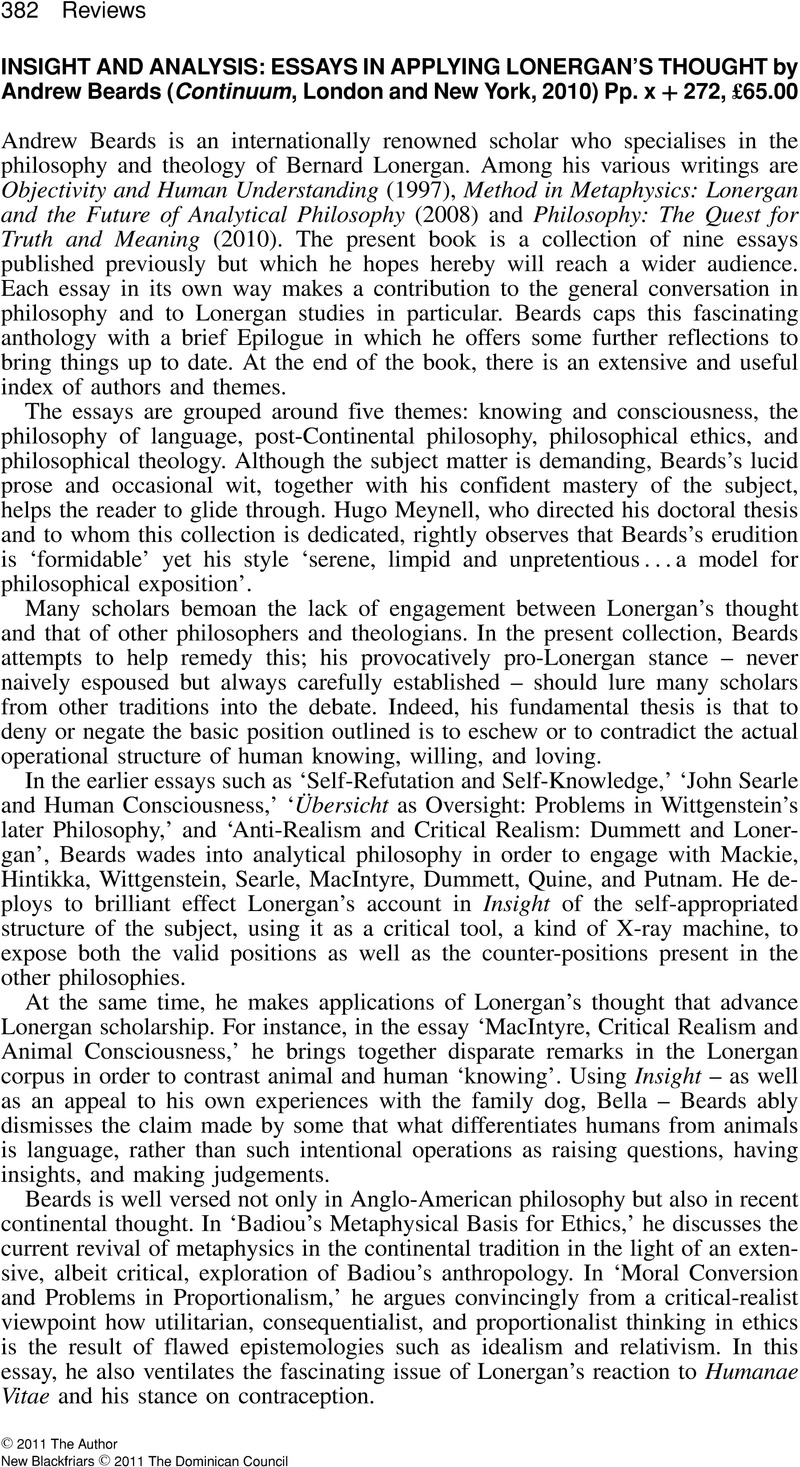No CrossRef data available.
Article contents
Insight and Analysis: Essays in Applying Lonergan's Thought by Andrew Beards (Continuum, London and New York, 2010) Pp. x + 272, £65.00
Review products
Insight and Analysis: Essays in Applying Lonergan's Thought by Andrew Beards (Continuum, London and New York, 2010) Pp. x + 272, £65.00
Published online by Cambridge University Press: 01 January 2024
Abstract
An abstract is not available for this content so a preview has been provided. Please use the Get access link above for information on how to access this content.

Information
- Type
- Reviews
- Information
- Copyright
- Copyright © 2011 The Author. New Blackfriars © 2011 The Dominican Council.

